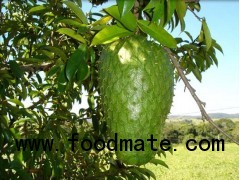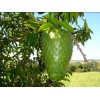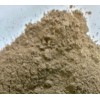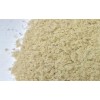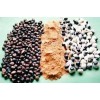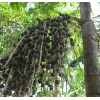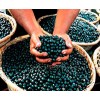1 – Graviola Dry Extract 4:1
Packing: 25kg fiber barrel
Family: Annonaceae
Genus: Annona
Species: muricata
Synonyms: Annona macrocarpa, A. bonplandiana, A. cearensis, Guanabanus muricatus
Common names: Graviola, soursop, Brazilian paw paw, guanábana, guanábano, guanavana, guanaba, corossol épineux, huanaba, toge-banreisi, durian benggala, nangka blanda, cachiman épineux
Part Used: Leaves, fruit, seeds, bark, roots
Genus: Annona
Species: muricata
Synonyms: Annona macrocarpa, A. bonplandiana, A. cearensis, Guanabanus muricatus
Common names: Graviola, soursop, Brazilian paw paw, guanábana, guanábano, guanavana, guanaba, corossol épineux, huanaba, toge-banreisi, durian benggala, nangka blanda, cachiman épineux
Part Used: Leaves, fruit, seeds, bark, roots
Properties and Actions:
Main Actions
• kills cancer cells
• slows tumor growth
• kills bacteria
• kills parasites
• reduces blood pressure
• lowers heart rate
• dilates blood vessels
• sedates
Other Actions
• relieves depression
• reduces spasms
• kills viruses
• reduces fever
• expels worms
• stimulates digestion
• stops convulsions
Standard Dosage
Capsules: 2 g 3 times daily
Graviola is a small, upright evergreen tree, 5–6 m high, with large, glossy, dark green leaves. It produces a large, heart-shaped, edible fruit that is 15–20 cm in diameter, is yellow-green in color, and has white flesh inside. Graviola is indigenous to most of the warmest tropical areas in South and North America, including the Amazon. The fruit is sold in local markets in the tropics, where it is called guanábana in Spanish-speaking countries and graviola in Brazil. The fruit pulp is excellent for making drinks and sherbets and, though slightly sour-acid, can be eaten out of hand.


